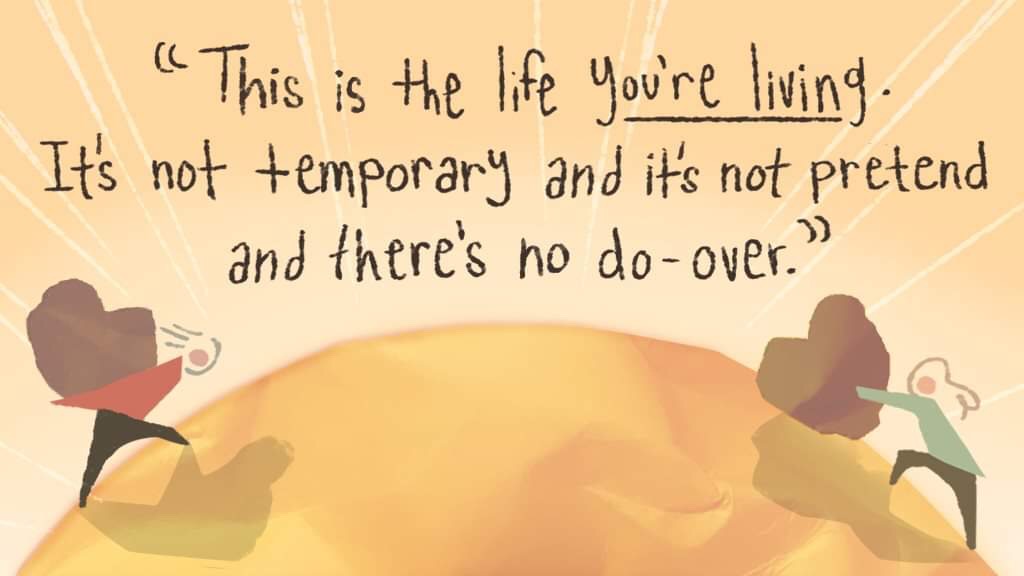Overview
After having read the book “The Sun is Also a Star” when it was first published, I was excited to see it transform into a film. With its diverse array of characters, unique insight into seemingly minor individuals and the palpable romance between the two teens at the story's center, the book mesmerized me in a way I’d never been before.
The daughter of undocumented Jamaican immigrants, Natasha Kingsley is a lover of science. She plans to attend college and study to become a data scientist — that is, until her family is discovered and given twelve hours to leave the country. All the while, South Korean teenager Daniel Bae grants his parents' wishes by applying to an Ivy League university instead of pursuing his own aspirations. He dreams of writing poignant poems that will change the world, and is working to find a balance between his Korean and American heritage unlike his racist older brother, Charlie.
“The Sun is Also a Star” proves that there is such a thing as “meant-to-be” and that everything in the universe happens for a reason. It reveals how other people’s lives have power over our own, regardless of whether or not we really know them. The story finally teaches you that you never know what someone is going through, but you have the power to save their life simply with kindness.
Unfortunately, the film didn't live up to the hype it received, and the star-crossed romance wasn't enough to save it from burning out.
Characters and Relationships
At the core of the film, I felt that the chemistry between Natasha (Yara Shahidi, who plays Zoey Johnson from black-ish) and Daniel (Charles Melton, who plays Reggie Mantle from Riverdale) wasn’t strong enough to make me want to root for them in the first place. In addition, many scenes suffered from lack of good acting, causing the dialogue to come across as deadpan and distant.
As opposed to the book, I felt that the movie put much more emphasis on PDA rather than dialogue. Despite their on-screen intimacy, it seemed unrealistic to me that two teenagers with such polar opposite personalities could fall deeply in love through long stares and cheesy lines. For a movie that focuses on high stakes, I didn’t feel any stress or anticipation like I should have, due to the lack of emotional connection between Daniel and Natasha. The film ran for 100 minutes, but it somehow felt longer to me, which was weird considering that the story takes place within the span of a single day.
At times, I felt that Daniel and Natasha acted out of character as well. Daniel is supposed to be the emotional and dreamy one, yet he never tells Natasha out loud that he loves her, even after she does. Similarly, Natasha imagines an alternate future with Daniel, even though she’s supposed to be more grounded and hesitant to fall in love with him.
I understand that the film was meant to be a teen romance, but I just couldn’t help rolling my eyes when Daniel started to sing the 1960s bop “Crimson and Clover” to Natasha in a noraebang (karaoke room). The cheesiness is real with this movie, and I wasn’t fully here for it.
Another downfall of the film was that it excluded crucial elements from the original story, such as Natasha’s relationship with her father. This is particularly important to the story, as her father is one of the undisclosed reasons for the family’s deportation. However, I really liked the montage of Daniel’s family story. I especially enjoyed the succession of photographs illustrating the history of how Daniel and his brother Charlie were named — an American name, followed by a Korean personal name, and then the family name.
As much as I hated Charlie Bae's character, I loved his portrayal by Jake Choi. His understandable resentment for his family, along with the way he was raised unforgivingly with such burdensome expectations, really opens a window into the Bae family dynamic.
But what is Natasha’s relationship with her parents like? Why is her character so pessimistic? Why is she so interested in science? And why doesn’t she believe in love and dreams? Valid questions like these are answered for Daniel and his family and yet, for some reason, we miss them on Natasha’s end.
We also miss out on the stories behind minor characters, thus losing sight of the major theme that others’ lives influence, and are influenced by, our main characters’ story. Instead of expanding on the novel's theme, the film devotes more screen time to intimate scenes. Furthermore, the lesson about fate was shallowly portrayed due to the over-romanticization of the film.
The Few Good Aspects
Unarguably, one of the strongest elements of the movie was director Ry Russo-Young’s beautiful work behind the camera. Her cinematography exquisitely captured the beauty and diverse culture of New York City, successfully providing a sweet and romantic atmosphere for the characters.
I also loved the film’s soundtrack, as it involved culturally rich music that incorporated Natasha’s heritage while highlighting her will to break free from her fate — all with a groovy vibe attached to it.
Another enjoyable component of the film was Natasha’s lessons on Carl Sagan’s findings, followed by enlightening snapshots of multiverse theory, astronomy and the Big Bang. Similarly, I took much interest in the portrayal of how the wig industry came to be predominantly owned by Korea in the 1960s, along with the story of how Natasha’s parents met and fell in love in Jamaica.
Final Critique
Overall, I would rate this film two out of five stars. I don’t think the movie did justice to the book’s story. Although the movie didn’t quite meet my expectations, I still strongly recommend that people read “The Sun is Also a Star,” a timely story of humanity and the courage to break the expectations placed upon us by society.








